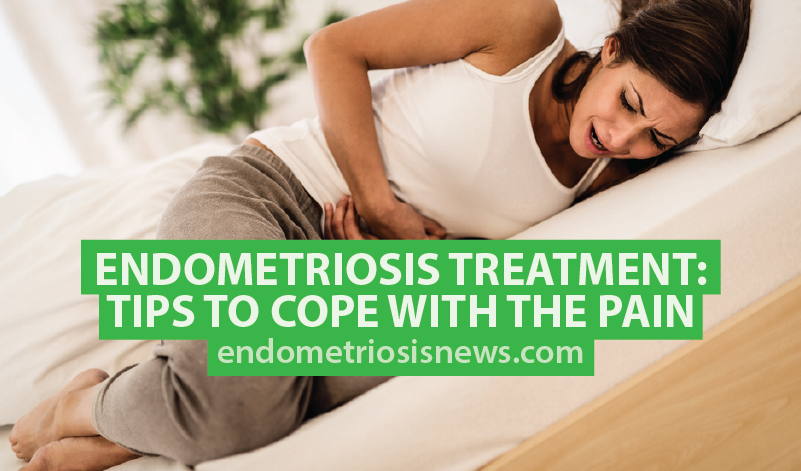1. Lifestyle Alterations
Pain is the most common symptom of endometriosis, which can be severe and even debilitating. Lifestyle alterations are not going to end the pain or cure endometriosis, but they can ease the symptoms and improve women’s quality of life. Being comfortable and reducing the stress are the main purposes of these lifestyle alterations. “Learning to manage the stress in your life is important under any circumstances but it is essential when you are living with chronic pain. Many young women with endometriosis feel overwhelmed with managing both their pain and the various stressors that impact their lives,” state the Center for Young Women’s Health (CYWH).
Some tips that might be helpful include sleeping well – eight to nine hours a night, taking naps if needed, meditating, eating healthy meals three times per day and nutritious snacks throughout the day, continuing with enjoyable activities and staying in touch with friends and family, as well as keeping their routine as much as possible and keeping up with work. Exercise such as yoga is also helpful to fight pain and some women find a simple hot water bottle or hot bath useful. The center also recommends women learn when and when not to push themselves, plan ahead for unexpected pain exacerbations and talk to a counselor about their symptoms.
2. Medication
There are different types of medication that may be recommended to women who suffer from endometriosis-related pain. Nonsteroidal anti-inflammatory drugs (NSAIDs) are the most common and include Ibuprofen, Voltarol or Ponstan. These work by blocking the body’s production of prostaglandins, which is over-produced by women with endometriosis and is known to cause contractions in the womb lining during menstruation and pain. However, unlike the common practice, NSAIDs work better if taken the day before or few days before the production of prostaglandins, which means before menstruation.
There are, however, potential side effects, which include nausea, vomiting, diarrhoea, stomach upsets and stomach ulcers. Other painkillers that may be recommended are codeine-based painkillers, which are helpful but also cause side effects such as constipation and gastro-intestinal distress. Physicians may also recommend simple analgesics like paracetamol. Pain modifiers are also an option, but its mechanism of action is different. Pain modifiers such as tricyclic anti-depressants alter the perception of pain from the body and are common for patients with depression.
3. Physiotherapy and Other Options
In the cases of severe and debilitating pain, endometriosis patients can also be recommended physiotherapy. “Physiotherapists can develop a programme of exercise and relaxation techniques designed to help strengthen pelvic floor muscles, reduce pain, and manage stress and anxiety. After surgery, rehabilitation in the form of gentle exercises, yoga, or Pilates can help the body get back into shape by strengthening compromised abdominal and back muscles,” explain the organization Endometriosis UK.
Another treatment option that is presented as an alternative to medication consists of the use of Transcutaneous Electrical Nerve Stimulator (TENS) machines. These are small devices with electrodes that can be attached to the skin in order to provide electrical pulses to the body. The painless pulses are expected to block the pain by traveling through the nerves or by stimulating the production of natural pain-fighting endorphins. In addition, “some hospitals and trusts have specialised pain clinics providing advice and support to people in chronic pain. Ask your GP about a referral to your nearest pain clinic.”
Learn more about endometriosis here: http://bit.ly/learnEndometriosis
Note: Endometriosis News is strictly a news and information website about the disease. It does not provide medical advice, diagnosis or treatment. This content is not intended to be a substitute for professional medical advice, diagnosis, or treatment. Always seek the advice of your physician or other qualified health provider with any questions you may have regarding a medical condition. Never disregard professional medical advice or delay in seeking it because of something you have read on this website.




